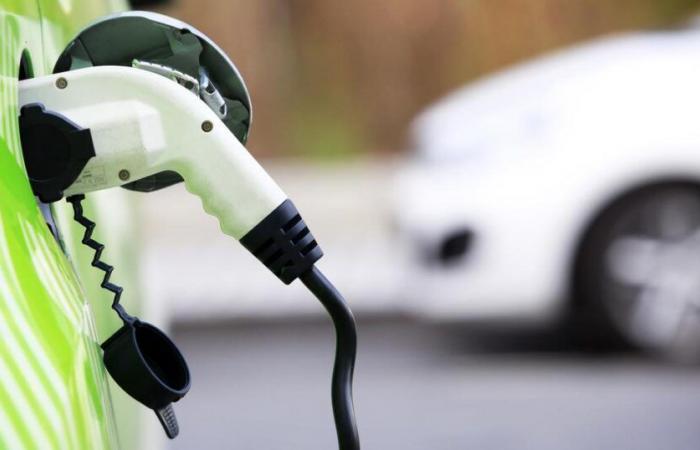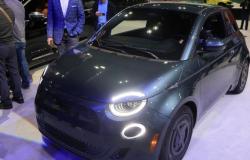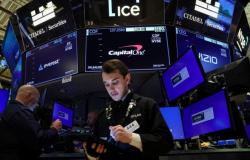A third of new cars registered in Switzerland last year were electric, according to TCS figures. Librec, the first recycling plant for electric cars, has opened near Solothurn. It will be able to process up to 10,000 tonnes of waste per year, for sustainable management of end-of-life materials.
Tesla, Renault Zoé, Volkswagen ID, these electric cars are increasingly visible on Swiss roads. Last year, one in three new cars was electric. And in total, they represent a little more than 6% of the fleet.
The batteries of these vehicles could well end up on Librec pallet trucks.
“At the moment, the batteries that arrive for recycling mainly come from production, these are production rejects,” explains Jodok Reinhardt, director and founder of Librec. “Otherwise there are also some returns of defective products and already some batteries at the end of their life.”
>> Read also: The recycling of electric car batteries is still too neglected
Energy verte
Once the batteries are collected by Librec, they are first discharged. “This takes place in twelve rooms made of bricks and solid concrete. All the electricity recovered goes into production. Librec only uses green energy.”
Why did you want to create a company of this type in Switzerland? “If Switzerland continues to electrify its vehicle fleet, up to a quarter of the vehicles, that would make a million cars carrying 400,000 tonnes of batteries. Here, we can process up to 10,000 tonnes per year. Even if we arrive at this figure, our capacity remains insufficient,” he explains. In other words, there is a real need.
In the next hall, by different mechanical processes, the batteries are reduced to crumbs and the materials sorted. In one box, copper, in another, aluminum..
“And there you can see the famous “black mass”, a black powder composed of nickel, cobalt and lithium, at 25% each. It has a great value, because the ton sells between 3000 and 4000 euros .”
This powder is sold in South Korea, because Europe does not yet have sufficient capacity to exploit it. Indeed, if in recent years the number of electric vehicles has exploded, in 2024, sales will stagnate. The European Union, which had planned to ban thermal engines for new registrations from 2035, is even considering relaxing this measure. An uncertain political climate, but which does not worry Jodok Reinhardt.
“We have designed infrastructure for 20 to 30 years. And as recyclers, we are in close contact with battery and automobile producers. For them, it is very clear: there will be no return backwards, even in Europe. The question is how quickly this change will take place.”
Betting on recycling: a crazy bet
Betting everything on recycling is a bet that could prove successful thanks to another factor, as Roland Hischier, group leader at EMPA, the federal materials research laboratory, explains.
“For the metals that we use in batteries, we do not have unlimited quantities of resources available. So, I think that it is the price that will guide the industry. The price of the rarest raw materials will increase, and as a result, recycling will also become more economically interesting.”
A long-term trend that could prove Librec right. According to a report from the Confederation, recycling revenues are expected to exceed those of the mining sector by 2060. As for Librec, it is already planning the opening of future sites in the coming years.
Joëlle Cachin/fgn






